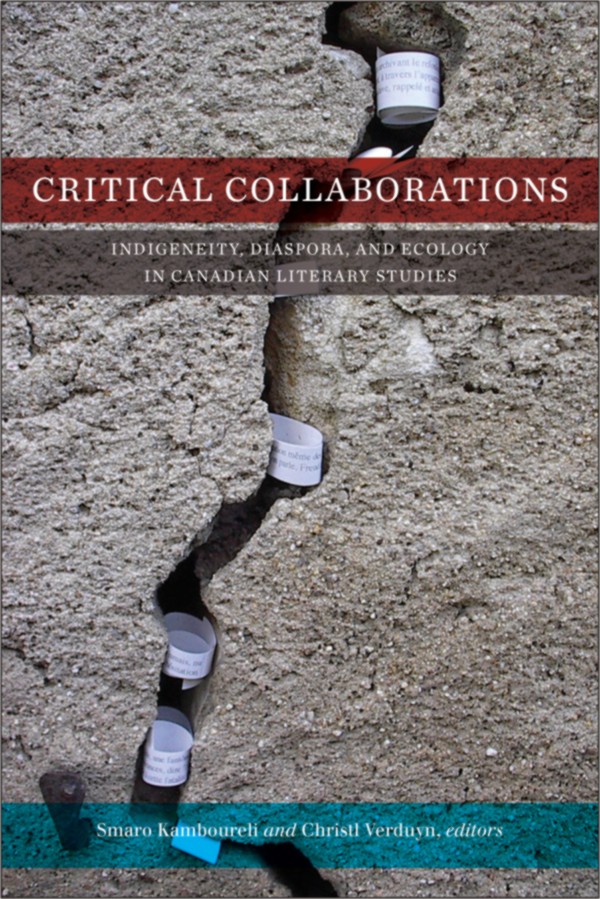
Critical Collaborations: Indigeneity, Diaspora, and Ecology in Canadian Literary Studies
- Edited by Smaro Kamboureli and Christyl Verduyn
- Wilfrid Laurier University Press, 2014, 296 pp.
Critical Collaborations: Indigeneity, Diaspora, and Ecology in Canadian Literary Studies is the third volume of essays produced as part of the TransCanada conferences project. The essays gathered in Critical Collaborations constitute a call for collaboration and kinship across disciplinary, political, institutional, and community borders. They are tied together through a simultaneous call for resistance—to Eurocentrism, corporatization, rationalism, and the fantasy of total systems of knowledge—and a call for critical collaborations. These collaborations seek to forge connections without perceived identity—linking concepts and communities without violating the differences that constitute them, seeking epistemic kinships while maintaining a willingness to not-know. In this way, they form a critical conversation between seemingly distinct areas and demonstrate fundamental allegiances between diasporic and indigenous scholarship, transnational and local knowledges, legal and eco-critical methodologies. Links are forged between Indigenous knowledge and ecological and social justice, creative critical reading, and ambidextrous epistemologies, unmaking the nation through translocalism and unsettling histories of colonial complicity through a poetics of relation. Together, these essays reveal how the critical methodologies brought to bear on literary studies can both challenge and exceed disciplinary structures, presenting new forms of strategic transdisciplinarity that expand the possibilities of Canadian literary studies while also emphasizing humility, complicity, and the limits of knowledge.

Producing Canadian Literature: Authors Speak on the Literary Marketplace
- Edited by Kit Dobson and Smaro Kamboureli
- Wilfrid Laurier University Press, 2013, 220 pp.
Producing Canadian Literature: Authors Speak on the Literary Marketplace brings to light the relationship between writers in Canada and the marketplace within which their work circulates. Through a series of conversations with both established and younger writers from across the country, Kit Dobson and Smaro Kamboureli investigate how writers perceive their relationship to the cultural economy—and what that economy means for their creative processes.
The interviews in Producing Canadian Literature focus, in particular, on how writers interact with the cultural institutions and bodies that surround them. Conversations pursue the impacts of arts funding on writers; show how agents, editors, and publishers affect writers’ works; examine the process of actually selling a book, both in Canada and abroad; and contemplate what literary awards mean to writers. Dialogues with Christian Bök, George Elliott Clarke, Daniel Heath Justice, Larissa Lai, Stephen Henighan, Roy Miki, Erín Moure, Ashok Mathur, Lee Maracle, Jane Urquhart, and Aritha van Herk testify to the broad range of experience that writers in Canada have when it comes to the conditions in which their work is produced.
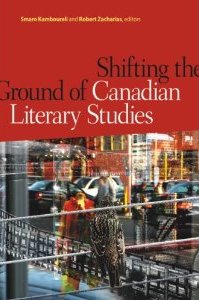
Shifting the Ground of Canadian Literary Studies
- Edited by Smaro Kamboureli and Robert Zacharias
- Wilfrid Laurier University Press, 2012, 310 pp.
Shifting the Ground of Canadian Literary Studies is a collection of interdisciplinary essays that examine the various contexts—political, social, and cultural—that have shaped the study of Canadian literature and the role it plays in our understanding of the Canadian nation-state. The essays are tied together as instances of critical practices that reveal the relations and exchanges that take place between the categories of the literary and the nation, as well as between the disciplinary sites of critical discourses and the porous boundaries of their methods. They are concerned with the material effects of the imperial and colonial logics that have fashioned Canada, as well as with the paradoxes, ironies, and contortions that abound in the general perception that Canada has progressed beyond its colonial construction. Smaro Kamboureli’s introduction demonstrates that these essays engage with the larger realm of human and social practices—throne speeches, book clubs, policies of accommodation of cultural and religious differences, Indigenous thought about justice and ethics—to show that literary and critical work is inextricably related to the Canadian polity in light of transnational and global forces.
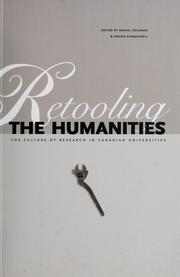
Retooling the Humanities: The Culture of Research in Canadian Universities
- Edited by Daniel Coleman and Smaro Kamboureli
- University of Alberta Press, 2011, 312 pp.
Is market-driven research healthy? Responding to the language of “knowledge mobilization” that percolates through Canadian postsecondary education, the literary scholars who contributed these essays address the challenges that an intensified culture of research capitalism brings to the humanities in particular. Stakeholders in Canada’s research infrastructure—university students, professors, and administrators; grant policy makers and bureaucrats; and the public who are the ultimate inheritors of such knowledge—are urged to examine a range of perspectives on the increasingly entrepreneurial university environment and its growing corporate culture.
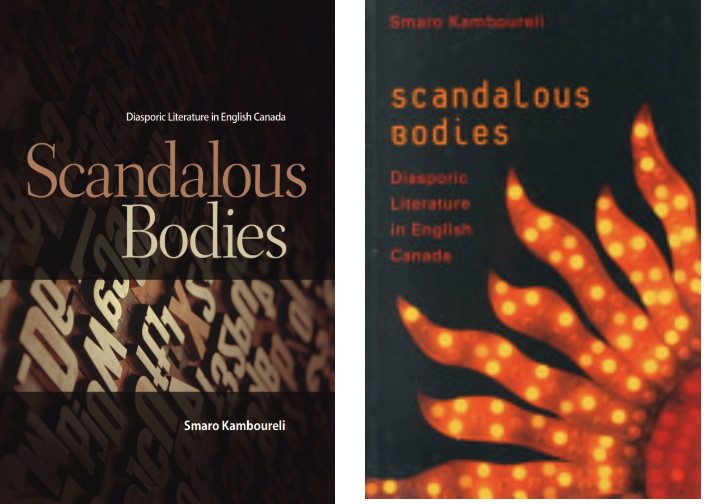
Scandalous Bodies: Diasporic Literature in English Canada
- Written by Smaro Kamboureli
- Wilfrid Laurier University Press, 2009, pp. 268; Oxford University Press, 2000, pp. 268
Scandalous Bodies is an impassioned scholarly study both of literature by diasporic writers and of the contexts within which it is produced. It explores topics ranging from the Canadian government’s multiculturalism policy to media representations of so-called minority groups, from the relationship between realist fiction and history to postmodern constructions of ethnicity, from the multicultural theory of the philosopher Charles Taylor to the cultural responsibilities of diasporic critics such as Kamboureli herself. Smaro Kamboureli proposes no neat or comforting solutions to the problems she addresses. Rather than adhere to a single method of reading or make her argument follow a systematic approach, she lets the texts and the socio-cultural contexts she examines give shape to her reading. In fact, methodological issues, and the need to revisit them, become a leitmotif in the book.
Theoretically rigorous and historically situated, this study also engages with close reading—not the kind that views a text as a sovereign world, but one that opens the text in order to reveal the method of its making. Her practice of what she calls negative pedagogy—a self-reflexive method of learning and unlearning, of decoding the means through which knowledge is produced—allows her to avoid the pitfalls of constructing a narrative of progress. Her critique of Canadian multiculturalism as a policy that advocates what she calls “sedative politics” and of the epistemologies of ethnicity that have shaped, for example, the first wave of ethnic anthologies in Canada are the backdrop against which she examines the various discourses that inform the diasporic experience in Canada.
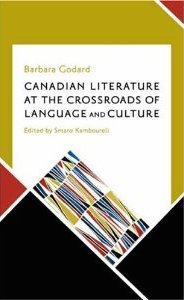
Canadian Literature at the Crossroads of Language and Culture: Selected Essays by Barbara Godard 1987-2005
- Edited by Smaro Kamboureli
- NeWest Press, 2008, 416 pp.
Barbara Godard has long been one of the most influential readers of Canadian literature. Much of the force of her work comes from her meticulous and relentless attention to the networks that produce both the texts and events we study and the methods through which we read them. Whether writing about feminist theory, orality and Native women writers, or the exigencies of the cultural field, she has been instrumental in interrogating, time and time again, the normative ways in which we think about Canadian culture. From the function of literature to the materiality of institutions and periodicals, from the theory and practice of translation to the interrelations between English- and French-Canadian literatures, her critical interventions have drastically reconceptualized our inherited understandings of Canadian culture as it relates to the world at large.
Edited by Smaro Kamboureli, including an interview Kamboureli conducted with Godard that offers a detailed look at the trajectories of Barbara Godard’s writing and teaching career, Canadian Literature at the Crossroads of Language and Culture is a groundbreaking collection of essays spanning the period 1987-2003 that will continue to be necessary reading for years to come.
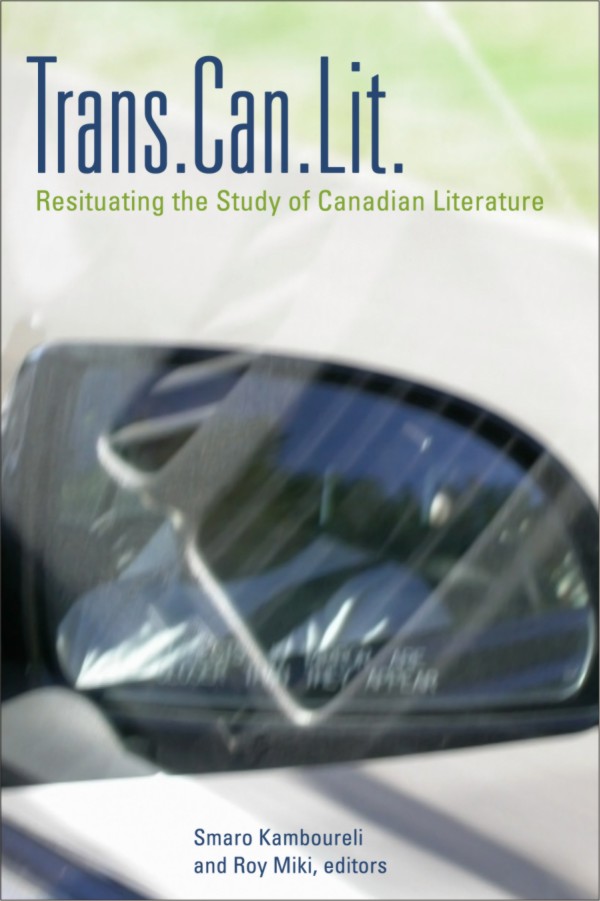
Trans.Can.Lit: Resituating the Study of Canadian Literature
- Edited by Smaro Kamboureli and Roy Miki
- Wilfrid Laurier University Press, 2007, 252 pp.
The study of Canadian literature—CanLit—has undergone dramatic changes since it became an area of specialization in the 1960s and ’70s. As new global forces in the 1990s undermined its nation-based critical assumptions, its theoretical focus and research methods lost their immediacy. The contributors to Trans.Can.Lit address cultural policy, citizenship, white civility, and the celebrated status of diasporic writers, unabashedly recognizing the imperative to transfigure the disciplinary and institutional frameworks within which Canadian literature is produced, disseminated, studied, taught, and imagined.
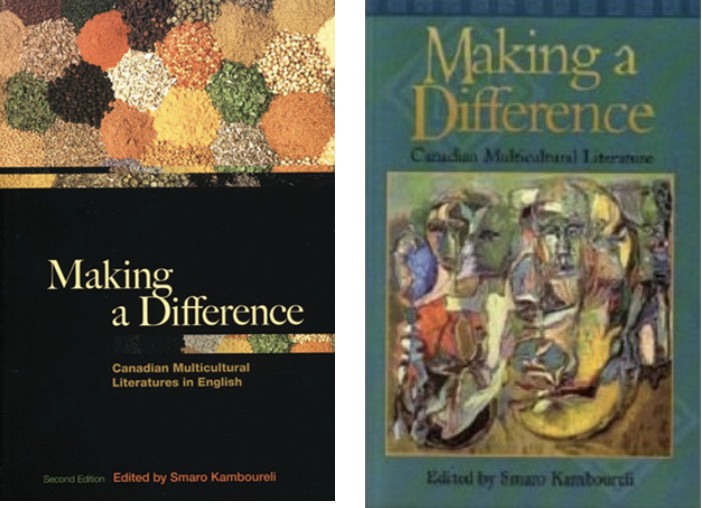
Making a Difference: Canadian Multicultural Literatures in English
- Edited by Smaro Kamboureli
- Oxford University Press, 2006 (Revised Edition), 547pp.; Oxford University Press, 1996, 547pp.
The most comprehensive anthology in its field, the second edition of Making a Difference builds on the solid literary foundation established in the original landmark volume. Featuring a blend of Canadian poetry and short fiction, this anthology includes the work of 70 writers representing a diverse range of Native and ethnic backgrounds. The result is a rich survey that celebrates the unique cultural heritage of Canadian literature and the multiplicity of this country’s cultural spectrum.
In addition to a new Introduction, this second edition also includes Kamboureli’s original Introduction. In these essays, Kamboureli problematizes the concepts of multiculturalism, minority authors, and canonization, and discusses the challenges of editing anthologies.
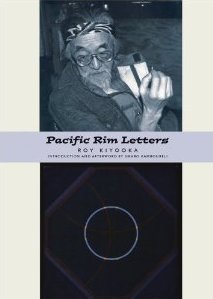
Pacific Rim Letters by Roy K. Kiyooka
- Edited by Smaro Kamboureli
- NeWest Press, 2005, 352 pp.
One of the manuscripts Kiyooka left unfinished when he died in 1994, Pacific Rim Letters was edited posthumously. The 300 letters it includes comprise at once a document and a creative work, personal meditation and cultural manifesto. A sequel to his Transcanada Letters (1975; corrected edition 2005 edited by Smaro Kamboureli, with an Afterword by Glen Lowry), this volume also includes a detailed Chronology of Kiyooka’s life and artistic trajectories, an Index of Correspondents, and an Afterword by Kamboureli.
“Pacific Rim Letters resembles a collection of letters gathered together after the death of their author, but it differs substantially from such volumes. . . . [E]ven in their present tense, at the time that they were written and mailed, these letters were intended to reach a readership beyond that of Kiyooka’s correspondents. Though bona fide letters, written for specific and actual addressees, they were also composed as missives to the polis he inhabited. . . . they exceed the economy of the postal system, and submit (their) delivery as a trope of inheritance. Their belatedness, insofar as their new readers are concerned, is symptomatic of the larger narrative inscribed in these letters—larger than the particular circumstances and occasions Kiyooka writes about, but developed through them both overtly and obliquely.” From Kamboureli’s “Afterword.”
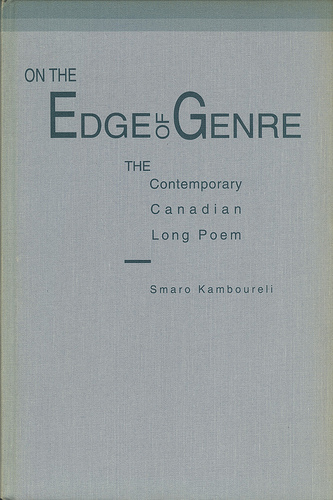
On the Edge of Genre: The Contemporary Canadian Long Poem
- Written by Smaro Kamboureli
- University of Toronto Press, 1991, 244 pp.
The long poem represents a significant body of work by some of Canada’s best-known contemporary poets. Eli Mandel, Daphne Marlatt, bpNichol, George Bowering, Michael Ondaatje, Dennis Cooley, Frank Davey, and Robert Kroetsch have all produced work in this form. Smaro Kamboureli looks at these works individually and collectively to determine the extent to which they form a new genre.
She begins by placing the Canadian long poem in its historical context, following its roots from the nineteenth century, through the twentieth, and up to the present day. Drawing on the work of such theorists as Derrida and Kristeva, she offers an acute critical reading of the theories that link the long poem to the epic, lyric, and documentary genres. Each of the poems is then analysed within this theoretical context.
Kamboureli concludes that the contemporary Canadian long poem both demands and defies generic definition and is in fact ‘at the edge of genre.’ Her work breaks new ground in applying theory to what many critics consider the single most significant form of modernist and postmodernist literature. Still the only full-length study of the Canadian long poem, this book has become a classic in the field.
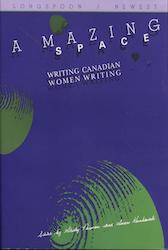
A Mazing Space: Writing Canadian Women Writing
- Edited by Smaro Kamboureli and Shirley Neuman
- Longspoon/NeWest Press, 1986, 427 pp.
In the context of Canadian literary studies, the early 1980s was still a time when literary theory, and especially feminist theory, was still in its infancy; major publishers and academic journals had barely begun to consider scholarship informed by theory and gender perspectives seriously. Indeed, theory was taught formally in only a handful of programs, while women’s writing, with the exception of a few canonical figures, was hardly taught. This collection was intended at once to provide a venue for feminist and theoretical scholarship and to advance Canadian criticism of women’s writing toward new directions. A pioneer study in that it was the first collection of feminist criticism by Canadian women scholars (and two male critics) on Canadian women writers, this book had a major impact on Canadian criticism.
A Mazing Space created a forum for the debates about gender issues, feminist literary discourse, methodology, and the Canadian literary canon. Through the interdisciplinary contributions of already established scholars (e.g., Linda Hutcheon, Barbara Godard, Ted Blodgett, and Jennifer Waelti-Walters) and young academics and graduate students (not a common thing in the Canadian Humanities in those days), it moved beyond the feminist concern at the time with representations of women in literature and culture, to introduce new theoretical and critical approaches, and facilitate new modes of the critique of received knowledge. Encouraged to write in ways that challenged the strictures of traditional academic discourse and writing style, the contributors did so productively, thus thematizing how genre and discourse mediate, and contain, knowledge.
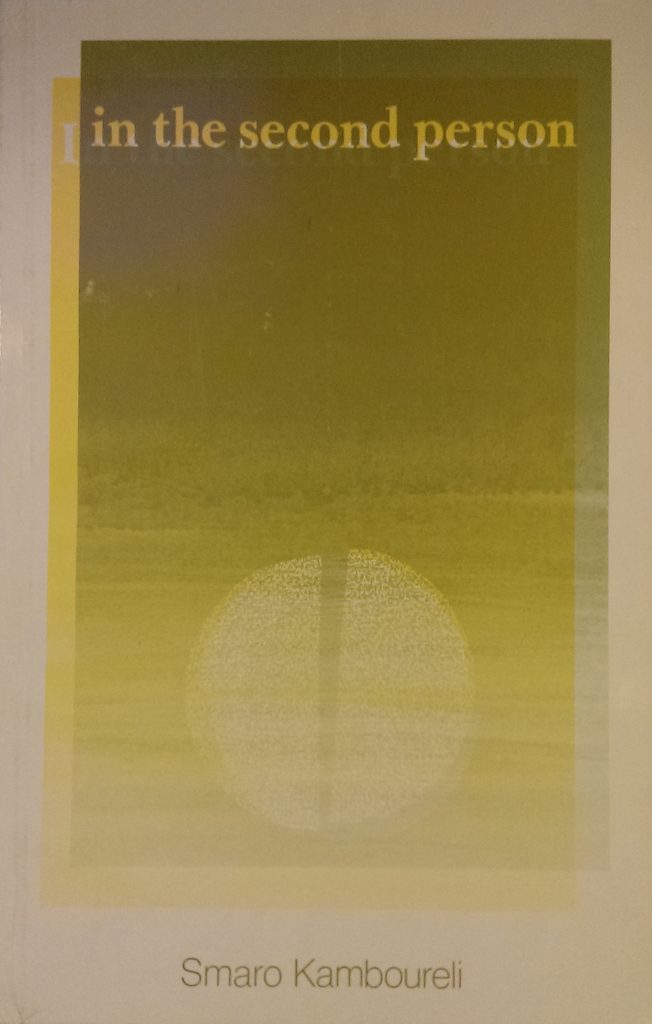
in the second person
- Written by Smaro Kamboureli
- Longspoon Press, 1985, 87 pp.
“A duel with, a courting of that lost ‘you’ once wholly ‘me’ of the mother-tongue, in the second person investigates the dual, the double ‘I’ of the self writing in a second language. This is a notebook of desire for what was but it is also an active translation of what is. Articulate, lucid, this writing breaks with description to enact the difference of a split subject who has changed her place of living in language and in so doing finds “the place of language” in herself.” (Daphne Marlatt)
“She locates the struggle clearly at the heart of language amongst those things that divide the tongue—the difference of origin, of country, of sex, of point of view. Structured as a poetic journal, it becomes an adjournal—a record of delay and departure—of passages which yield passages of brilliant poetry and prose, a moving record of that movement out.” (bp Nichol)
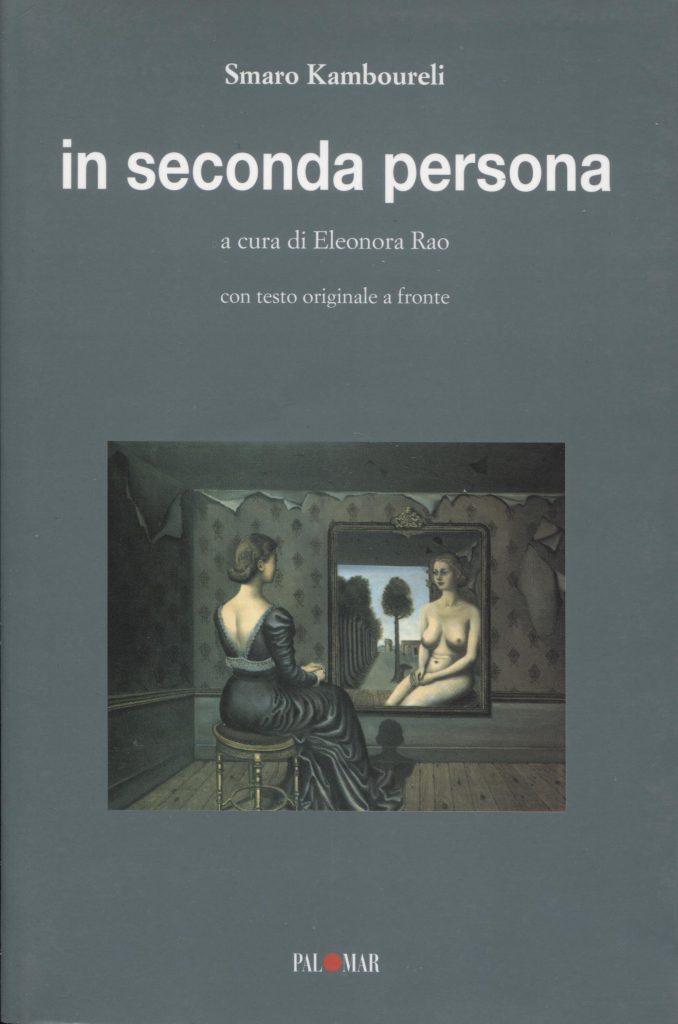
In Seconda Persona
- By Smaro Kamboureli, translated by Clara Antonucci with critical commentary by Eleonora Rao
- Palomar, 2007, 216 pp.
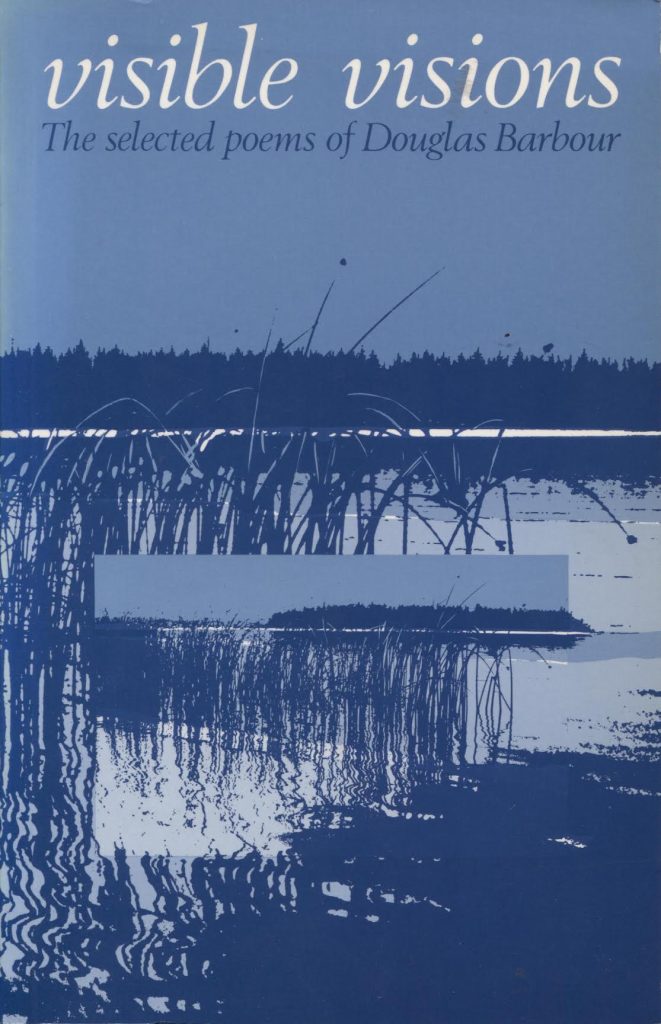
Visible Visions: The Selected Poems of Douglas Barbour
- Edited with an Introduction by Smaro Kamboureli and Robert Kroetsch
- NeWest Press, 1984, 159 pp.